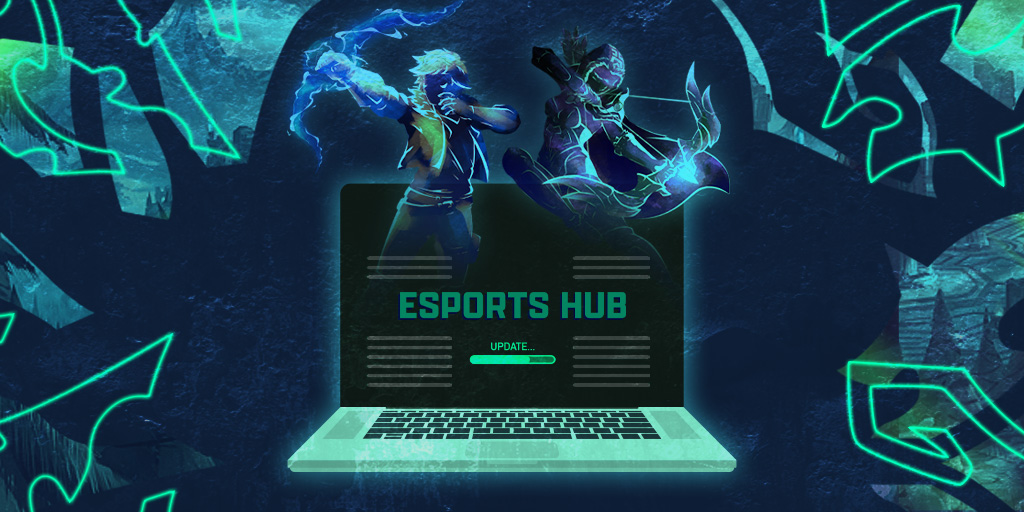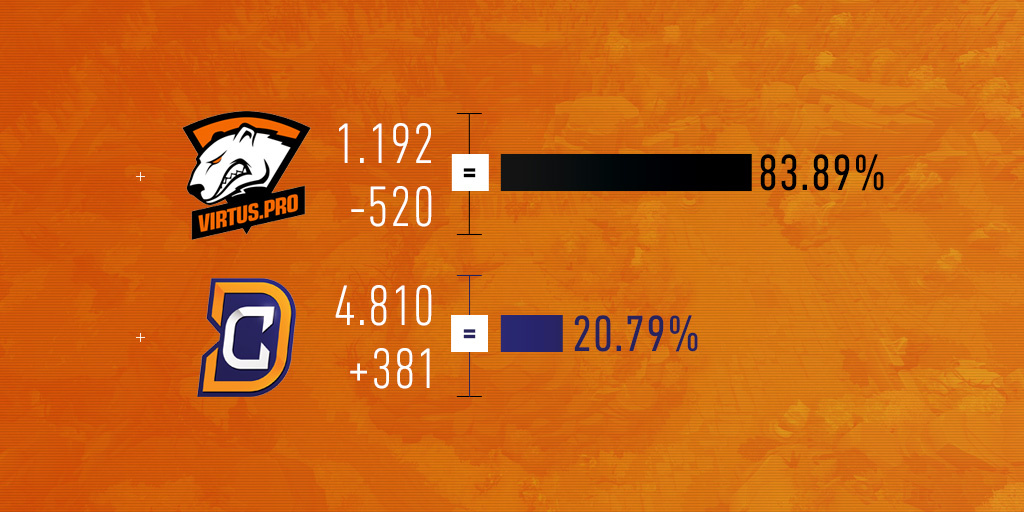It is widely accepted that teams playing at home in competitive sports benefit from improved performance compared to playing in their opponent’s stadium (or a neutral venue) but does this also apply to esports? What is home field advantage (HFA), does it exist in esports and why is it important for bettors to understand? Read on to find out.
Home field advantage refers to the perceived advantages enjoyed by the home team in a sporting event. Data often suggests that such a phenomenon does exist, but it’s hard to pinpoint why it occurs - many believe things like the influence of the crowd, familiarity of surroundings and avoiding the detrimental effects of travelling long distances to a match are the main factors that contribute to home field advantage.
Using soccer as an example, we can analyse the impact of home field advantage. The table below shows performance data from the top three teams from the 2016/17 English Premier League season for both home and away matches:
All stats sourced from Whoscored.com Goals: Total goals Shots pg: Shots per game
There is a marked difference in the number of goals scored at home and away for Chelsea and Tottenham. Manchester City scored more goals away from home but all three had more shots per game at home compared to away.
By expanding the data for the entire Premier League, we see average goals per game at home matches of 30.35, compared to 22.85 for away games. Shots per game are also lower away from home, 11.54 compared to 14.065. This shows a clear indication of how consistently HFA affects soccer.
The formula used to calculate HFA for soccer is simple. You take the number of goals scored at home per season (HG), minus the goals conceded at home (HC) and then divide by the number of home games played in a season.
HFA = (HG – HC) / Total home games
Unfortunately, this equation is not as simple in esports betting. Teams don’t have home stadiums (only home countries) and they don’t play the reverse fixtures like in traditional sports, where teams play the same number of home and away games.
Despite these limitations, many believe HFA still exists in esports. It is important to remember many factors alter a player’s performance and the location of the tournament is merely one of them. Drawing such conclusions from popular opinion without statistical data to back it up is a mistake many novice bettors make.
Do esports teams perform better in their home country?
Some esports (League of Legends and Overwatch) are played in a single location during the regular season, making it impossible to quantify HFA. CS:GO is the easiest of the popular esports to study due to its large number of events around the world.
However, so many CS:GO squads have mixed nationality rosters so the number of teams to study is vastly reduced. The table below shows the kill-death (KD) ratios of five team’s LAN results from the past three years (January 1, 2015 – January 1, 2018). The figures represent an average of their total KD ratios.
Teams kill/death ratios 2015 - 2018
A quick look at the table above shows some intriguing results. For example, only two of the five sides showed an improvement at LANs in their home country, with the remaining three all having negative ratios. Fnatic’s popularity even in their home nation is minimal, so their statistics being higher will probably come as a surprise to most.
While it does make sense for players to credit the crowd for their improved performance, the praise appears to be nothing more than a gesture.
Despite NiP attributing their relative success on home soil to the crowd (including their win at DreamHack Malmo), the statistics seem to differ from their assessment. NiP statistically performed worse during LAN events in Sweden than abroad, albeit by a small margin.
While it does make sense for players to credit the crowd for their improved performance, the praise appears to be nothing more than a gesture. Thanking the home fans is the perfect way to encourage them to chant the player’s name, which is enough to make anyone feel good.
Are individual players affected by HFA in esports?
We must test the theory in more detail due to the inconclusive results gathered from the teams. Analysing individual players may allude to more of a noticeable pattern. Below is a table containing the statistics of one player from each of teams analysed – GeT_RiGhT from NiP, Skadoodle from Cloud9, Edward from Natus Vincere, flusha from fnatic and nitr0 from Team Liquid.
Players kill/death ratios 2015 - 2018
Interestingly the figures of the individual players are vastly different from that of their team. Flusha’s KD differs vastly from fnatic’s, with his KD lower at LAN’s in his country than others. Flusha is known for being an unpopular player even in Sweden, which may be one reason for this difference.
Skadoodle, nitr0 and GeT_RiGhT have similar KD ratios to their teams, with only minor differences apparent. Edward performs far better at events in Ukraine than the majority of his team. This statistic may allude to HFA playing a part on some individuals, but not as consistently on teams as we saw in soccer.
What conclusions can we make from HFA’s effects in esports?
In summary, the results seem to prove HAF doesn’t affect esports consistently. While some players do perform better in their home nations, it is a case-by-case phenomenon and applying a general rule to your esports bets based on HFA would be a mistake.
Despite NiP attributing their relative success on home soil to the crowd (including their win at DreamHack Malmo), the statistics seem to differ from their assessment.
There are multiple reasons for players or sides playing better or worse in different locations and with HFA’s effects being inconclusive, considering other factors and not just crowd, travel and environment, will help bettors devise a more comprehensive betting strategy.
The impact of home advantage isn’t entirely nullified, but with the format of home and away teams vastly different in esports, other factors seem to affect a player’s performance more significantly than in more traditional sports such as soccer and tennis.
Want to learn more about betting on esports? Go back to our esports betting hub.







